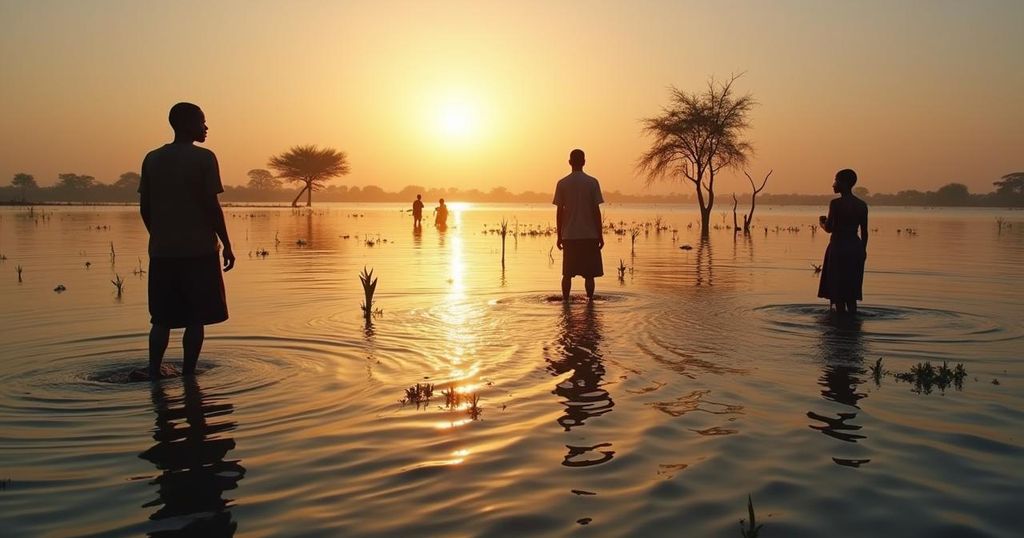South Sudan in Focus: Rising Concerns Amid Flooding and Political Challenges
Flooding in Unity State has raised concerns over potential water-borne diseases, according to an activist. In addition, South Sudanese individuals in Ethiopia described their experiences following a recent earthquake. Insights regarding low voter turnout in a recent presidential election were provided by a former US diplomat, highlighting complex political issues in the region.
In a recent declaration concerning the adverse effects of flooding in South Sudan’s Unity State, an activist has raised alarms regarding the potential outbreak of water-borne diseases following two weeks of relentless floods. According to reports, many individuals affected by the flooding are grappling not only with the immediate impact of displacement but also with the looming threat of health risks associated with contaminated water sources. Amid these challenges, some South Sudanese citizens who fled to neighboring Ethiopia recounted their experiences following the earthquake that struck the region last Sunday, highlighting the dual crises faced by the community. Additionally, insights were provided by a former US diplomat based in Tunis, who elaborated on the factors contributing to the low voter turnout in the recent presidential election held on the same day, indicating a complex interplay of political and social dynamics across the region. More developments in the situation continue to unfold as affected populations seek relief and support in the wake of these calamities.
The ongoing humanitarian crisis in South Sudan is exacerbated by extreme weather patterns, leading to significant flooding which impacts countless lives. Unity State, in particular, has become a focal point for this disaster, compelling many to evacuate their homes and seek refuge in safer locations. The historical beleaguerment of South Sudan by political instability and natural disasters has created a multifaceted predicament for its citizens, who now face challenges such as inadequate healthcare, food security, and shelter during such climatic events. The recent earthquake in the region further complicates the situation, necessitating urgent international attention and intervention.
In summary, the situation in South Sudan, particularly in Unity State, showcases the intersection of natural calamities and humanitarian crises. The warnings issued by health activists about potential outbreaks of water-borne diseases underscore the critical need for immediate aid and intervention. Concurrently, the narratives from South Sudanese refugees in Ethiopia elucidate the broader implications of both environmental and geopolitical factors on electoral participation and civic engagement. These insights highlight the urgent need for sustained support for affected populations as well as a coordinated response to prevent further deterioration of health and safety within the region.
Original Source: www.voaafrica.com




Post Comment